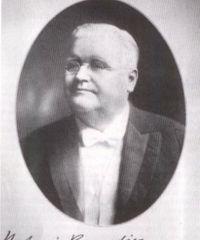Names Quotes - Page 184
Song: Nameless, Album: Taylor Allderdice, 2012
Winston Churchill (1951). “War speeches”
Everyone has a right to pronounce foreign names as he chooses.
Winston Churchill (2001). “The Wicked Wit of Winston Churchill”, Michael O'Mara Books
William Wordsworth (1962). “A Wordsworth Selection”
'The Prelude' (1850) bk. 14, l. 190
The Philosophy of the Inductive Sciences vol. 1 (1840). Whewell coined scientist at a meeting of the British Association for the Advancement of Science in the early 1830s.
William Stanley Jevons (1970). “The Theory of Political Economy”, Penguin (Non-Classics)
William Stanley Jevons (1970). “The Theory of Political Economy”, Penguin (Non-Classics)
William Shenstone (1804). “Essays on Men and Manners”, p.101
'Henry V' (1599) act 4, sc. 7, l. [28]
We go to gain a little patch of ground that hath in it no profit but the name.
'Hamlet' (1601) act 4, sc. 4, l. 18
William Shakespeare (1752). “The beauties of Shakespear: regularly selected from each play, with explanatory notes and similar passages from ancient and modern authors by W. Dodd”, p.92
William Shakespeare, Oliver William Bourn Peabody, Samuel Weller Singer, Charles Symmons, John Payne Collier (1839). “The Dramatic Works of William Shakspeare: Richard III. Henry VIII. Troilus and Cressida. Timon of Athens. Coriolanus”, p.114
In thee thy mother dies, our household's name, My death's revenge, thy youth, and England's fame.
William Shakespeare, Michael Taylor (2004). “Henry VI, Part One”, p.212, Oxford University Press, USA
William Shakespeare, Howard Staunton (1860). “The Plays of Shakespeare with the Poems”, p.772
William Shakespeare, Thomas Dolby (1832). “The Shakespearian Dictionary, Forming a General Index to All the Popular Expressions, and Most Striking Passages in the Works of Shakespeare, from a Few Words to Fifty Or More Lines ... By T. Dolby”, p.60
William Shakespeare (2003). “Untitled”, p.19, Simon and Schuster
'The Winter's Tale' (1610-1) act 4, sc. 2, l. [24]







